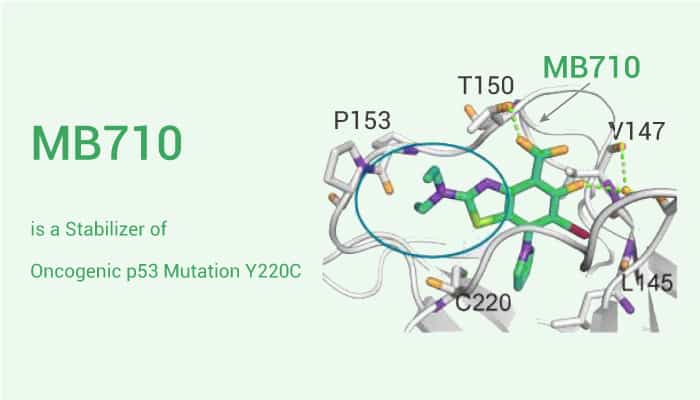p53 acts as a tumor suppressor protein. Additionally, it plays s a pivotal role in several critical cellular processes, including cell-cycle regulation, DNA repair, and apoptosis. The p53 protein exerts its tumor suppressor function through complex and intricate regulatory processes.
The tumor suppressor protein p53 plays a pivotal role in several critical cellular processes, including cell-cycle regulation, DNA repair, and apoptosis. Besides, it exerts its tumor suppressor function through complex and intricate regulatory processes mediated by its association with a wide range of cellular effectors.
Why P53 could become a hot spot in tumor research? In fact, most tumors display impaired or abrogated p53 signaling. p53 is inactivated directly by a mutation in about 50% of all cancers, This makes the p53 pathway a prime target for anticancer drug development.
The mutation of p53 always appears in its DNA-binding domain (DBD), which affects its DNA binding and/or thermodynamic stability. The oncogenic Y220C mutant is the ninth most frequent p53 missense mutant in cancer. And it shows a particularly suitable test case for stabilizers development.
In this article, we will introduce a stabilizer of oncogenic p53 mutation Y220C, MB710.

MB710 is an aminobenzothiazole derivative. It binds tightly to the Y220C pocket and stabilizes p53-Y220C, with a Kd of 4.1 μM.
MB710 shows anticancer activity in p53-Y220C cell lines, including NUGC3 (mutant p53 Y220C) and HUH-7 (mutant p53 Y220C) cells. Additionally, MB710 shows relatively low toxicity against all cell lines tested at concentrations up to 60 μM. The NUGC3 is the most sensitive cell line. However, the IC50 values for NUGC3, NUGC4, WI38 and SW1088 cells ( (p53 WT) are 90, 120, >120, >120 μM, respectively.
In summary, in this article, we introduce a novel small molecule aimed at stabilizing the folded form of the p53 cancer mutant Y220C. MB710 exhibits a high affinity with a Kd of 4 μM. What’s more, MB710 induces selective viability reduction in cancer cell lines containing the oncogenic p53-Y220C mutation. But it is well tolerated in other cell lines.
Reference:
[1]. Baud MGJ, et al. Eur J Med Chem. 2018;152:101-114.